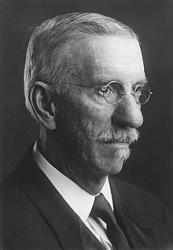Planning worship?
Check out our sister site, ZeteoSearch.org,
for 20+ additional resources related to your search.
- |
User Links
Search Results
Praise God for the Savior
Appears in 42 hymnals First Line: In the rosy light of the morning bright Refrain First Line: Sing praises, glad praises Used With Tune: LILY DALE
Praise God for the Savior
[In the early light of the morning bright]
Appears in 2 hymnals Composer and/or Arranger: J. E. White Incipit: 55123 11217 65556 Used With Text: Sing Praises
[In the early light of the morning bright]
[In the rosy light of the morning bright]
Appears in 2 hymnals Composer and/or Arranger: C. M. Wyman Incipit: 12333 13555 33222 Used With Text: In the Rosy Light of Morning Bright
[In the rosy light of the morning bright]
[In the early light of the morning bright]
Appears in 1 hymnal Composer and/or Arranger: Frank M. Davis Incipit: 12335 43224 32112 Used With Text: Sing Praises
[In the early light of the morning bright]
In the Rosy Light of Morning Bright
Hymnal: The Epworth Hymnal No. 2 #17 (1891) First Line: In the rosy light of the morning bright Refrain First Line: Sing praises, glad praises Languages: English Tune Title: [In the rosy light of the morning bright]
In the Rosy Light of Morning Bright
In the Rosy Light
Hymnal: Twilight Zephyrs #54 (1881) First Line: In the rosy light of the morning bright Refrain First Line: Sing praises, glad praises Languages: English Tune Title: [In the rosy light of the morning bright]
In the Rosy Light
Sing praises, glad praises
Hymnal: The New Sabbath School Hosanna #19 (1870) First Line: In the rosy light of the morning bright Lyrics: 1 In the rosy light of the morning bright,
Lift the voice of praise on high;
From the lips of youth to the God of truth,
Let the joyful echoes fly.
Chorus:
Sing praises, glad praises,
Sing, children, sing,
Let your songs arise to the lofty skies,
And exult in God our King.
2 As he look'd in love from the world above,
Our distresses fill'd his eye;
And, a world to save, his own Son he gave,
On the bloody tree to die. [Chorus]
3 Let his praise be spread, for the Lamb who bled,
To deliver us from woe,
He endured the cross, the disgrace, the loss;
Let his praise for ever flow! [Chorus]
4 Now, exalted high o'er the earth and sky,
He delights in mercy still;
Bends his gracious ear, our request to hear,
And our longing souls to fill. [Chorus]
5 On the cross he hung for the old and young,
But he loves the children best;
To his arms we'll fly, on his grace rely,
And secure his promised rest. [Chorus] Tune Title: ROSY LIGHT
Sing praises, glad praises
Frank M. Davis

1839 - 1896 Composer of "[In the early light of the morning bright]" in Songs of Promise Frank Marion Davis USA 1839-1896. Born at Marcellus, NY, he became a teacher and professor of voice, a choirmaster and a good singer. He traveled extensively, living in Marcellus, NY, Vicksburg, MS, Baltimore, MD, Cincinnati, OH, Burr Oak and Findley, MI. He compiled and published several song books: “New Pearls of Song” (1877), “Notes of Praise” (1890), “Crown of gold” (1892), “Always welcome” (1881), “Songs of love and praise #5” (1898), “Notes of praise”, and “Brightest glory”. He never married.
John Perry
Frank M. Davis
James Edson White

1849 - 1928 Person Name: J. E. White Composer of "[In the early light of the morning bright]" in Song Anchor
James Edson White
L. C. Everett
1818 - 1867 Composer of "[In the rosy light of the morning bright]" in Twilight Zephyrs L. C. Everett's largest and most popular collection was The Wesleyan Hymn and Tune Book (1859), published by the Methodist Episcopal Church South. The denominational dedication page in that collection says it was "prepared by Mr. L.C. Everett, of Virginia, a gentleman well-known through the South and Southwest, as an author and teacher of sacred vocal music." In his own introductory remarks, Everett's instincts as an educator are clear. He advised churches to offer a weekly congregational singing class "for the purpose of meeting together frequently, say one evening each week, to practice the tunes under the direction of a suitably qualified chorister or leader, and ... that the entire congregation be invited to attend the rehearsals of the class and join in learning the tunes." For Everett, musical worship was not just the duty of a choir, it was the duty of everyone.
Leonard’s brothers were Asa Brooks Everett (1828-1875), N.E. Everett, & Benjamin Holden Everett. Leonard and Asa developed a successful music education system called "The Everett System," and together with R.M. McIntosh they formed the L.C. Everett Company, which employed approximately fifty music teachers throughout the American south and middle Atlantic.
—Chris Fenner
see also J.H. Hall, Biography of Gospel Song and Hymn Writers (New York: Fleming H. Revell, 1914), pp. 96-100.
L. C. Everett


 My Starred Hymns
My Starred Hymns


